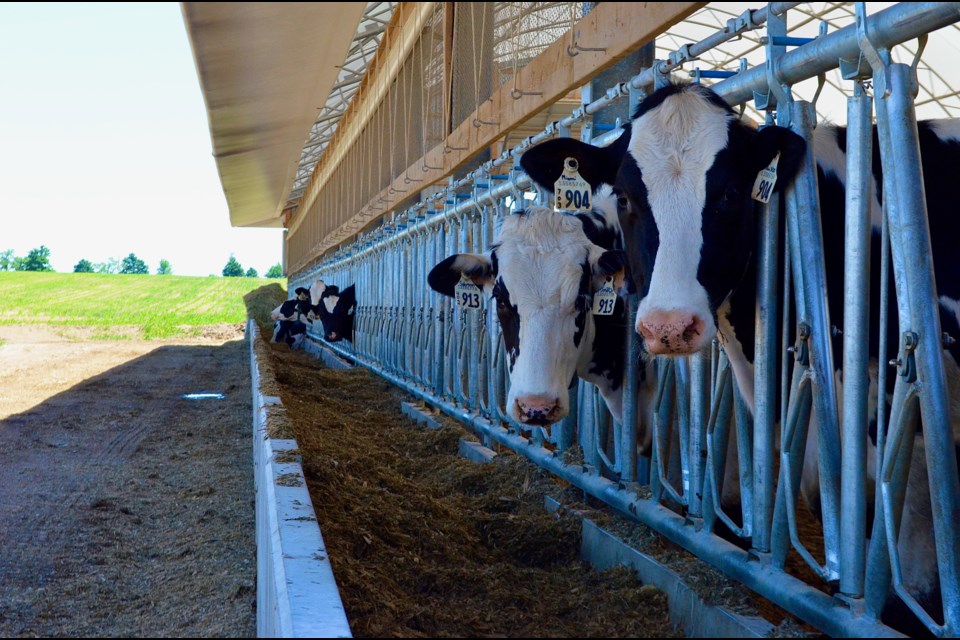MAPLETON - Farmlands and forests generate more revenue for the municipality than it cost to service them, according to a cost of community services study conducted by Wellington Federation of Agriculture (WFA), in partnership with the Ontario Federation of Agriculture (OFA).
“What the cost of the community service study showed was that for every dollar of farm tax land revenue, it costs the municipality 34 cents to provide those services,” said Janet Harrop, president of WFA, on the phone.
"We're trying to advocate the use of the agriculture tax revenue for municipal partnership dollars to meet the infrastructure needs in Mapleton such as its bridge and roads projects. So, we want to reduce the tax rates on farmland and receive more funding from the province. Farmlands generate more revenue for the municipality than to cost to service them."
By comparison, the study shows municipal spending of 80 cents for every dollar collected from residential taxes, and 79 cents for every dollar collected from commercial or industrial taxes.
WFA's study looks at farmland and the taxes that land brings in for the local government and what kind of services the municipality can offer using farmland taxes for the agriculture tax class.
WFA and OFA wanted to showcase to the province which municipal services the provincial government should upload or provide additional funding to rural municipalities using its agricultural taxes.
Harrop explained Mapleton’s main demand for additional funding is for infrastructure.
“The reason we have been advocating on doing this study at Mapleton is because Mapleton is the largest economic driver of agriculture in Wellington County,” said Harrop.
“They have the largest percentage of farms in the county and they also have two fairly small urban centres. In terms of a tax revenue perspective, Mapleton has a real infrastructure deficit. The municipality is put at a disadvantage when it comes to receiving dollars from the Ontario municipal partnership fund transfer dollars because the township has additional farmland they cannot use to repair or build roads and bridges.”
Harrop noted that COCS studies have been described as “snapshots in time” of each land use fiscal impact on a municipality in a particular year. So, they should not be used as a statement about fiscal impacts of land for future years.
According to the COCS, the province needs to address the inequity in provincial gas tax funding, explaining that the provincial gas tax rate is based on public transit. So, if municipalities don’t have public transits, then they don’t get funding. This excludes rural municipalities from getting funding from the provincial gas tax rate.
“In 2019, rural municipalities received less than one per cent of the $365 million in provincial gas tax funding,” the study reported.
“Meanwhile, rural municipalities received approximately seven per cent of the $1.6 billion in 2019 in federal gas tax funding provided to Ontario municipalities due to wider eligibility criteria. Mapleton received nothing in provincial gas tax funding and $637,509 in federal gas tax funding that year.”
OFA and WFA also want the province to increase its Ontario municipal partnership (OMPF) funding by 75 per cent to provide the same level of support it did in 2005.
In 2005, OMPF funded provincial rural municipalities with $656 million in annual funding. By 2021, the funding has been reduced to $500 million.
Mapleton received $1,215,495 in OMPF funding in 2005, but received only $837,400 in 2019.
“We’re looking forward to working with rural municipalities alongside with the OFA to ensure adequate funding is going to rural communities for community services,” explained Harrop.
She also noted the WFA and Mapleton council will be working alongside to advocate for additional funding and the study results. They’re also working together to delegate at the Association of Municipalities of Ontario conference in August.



